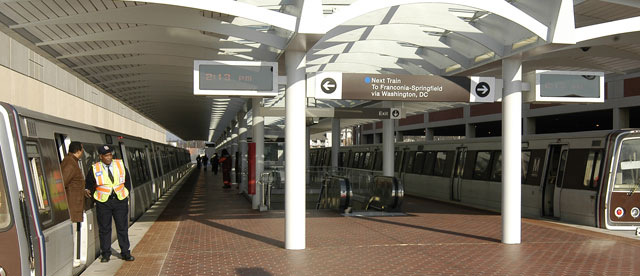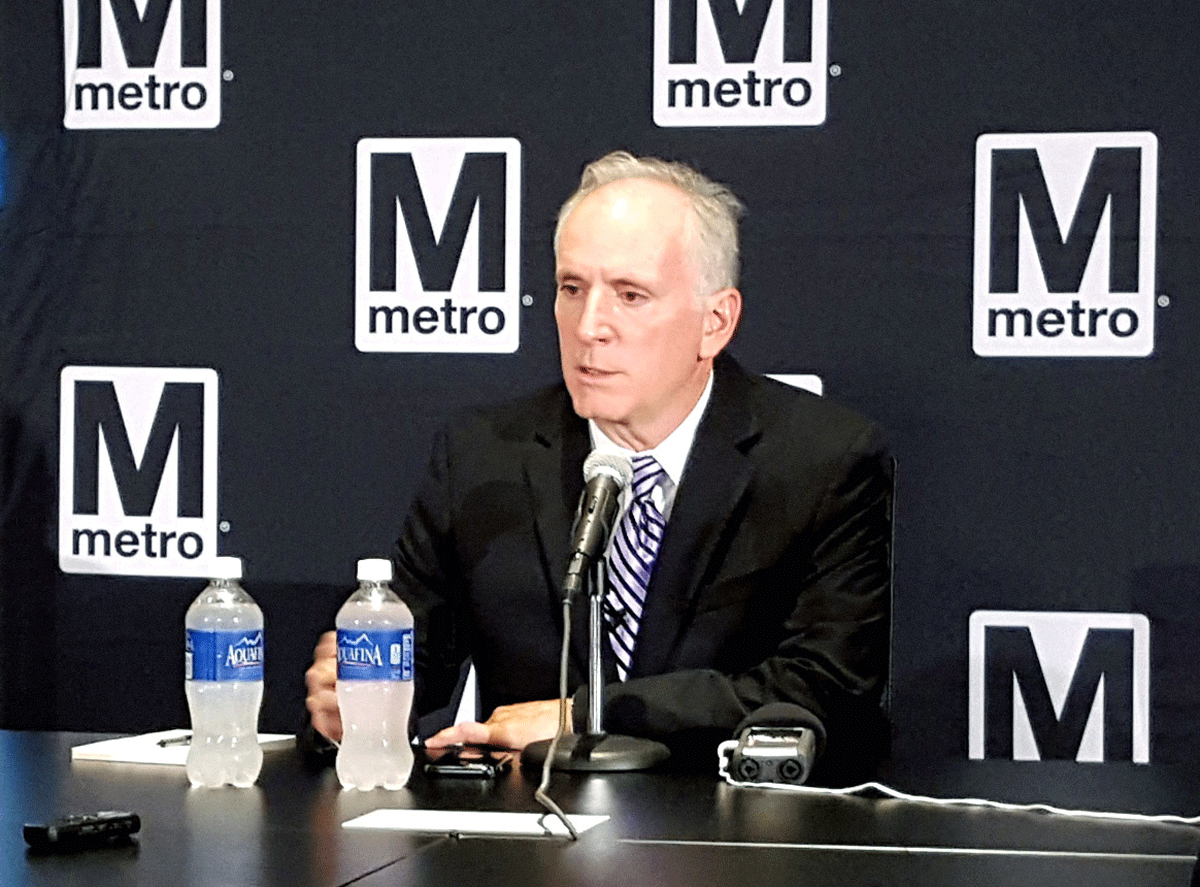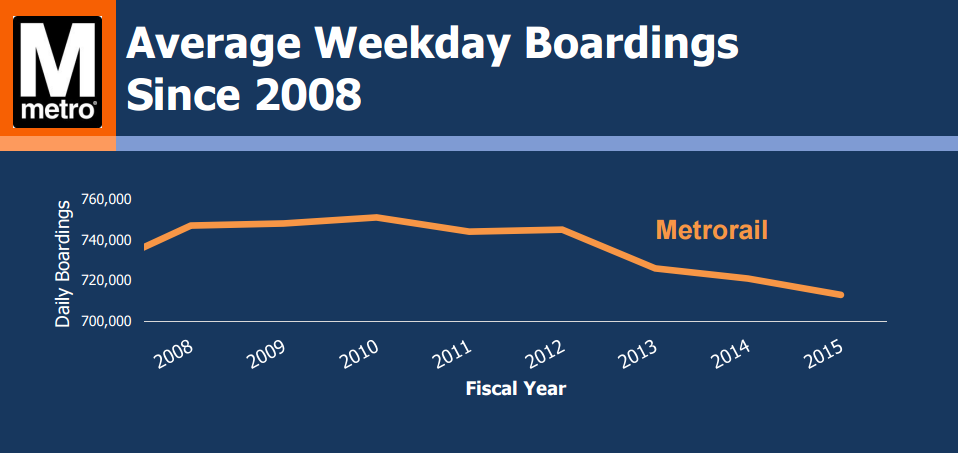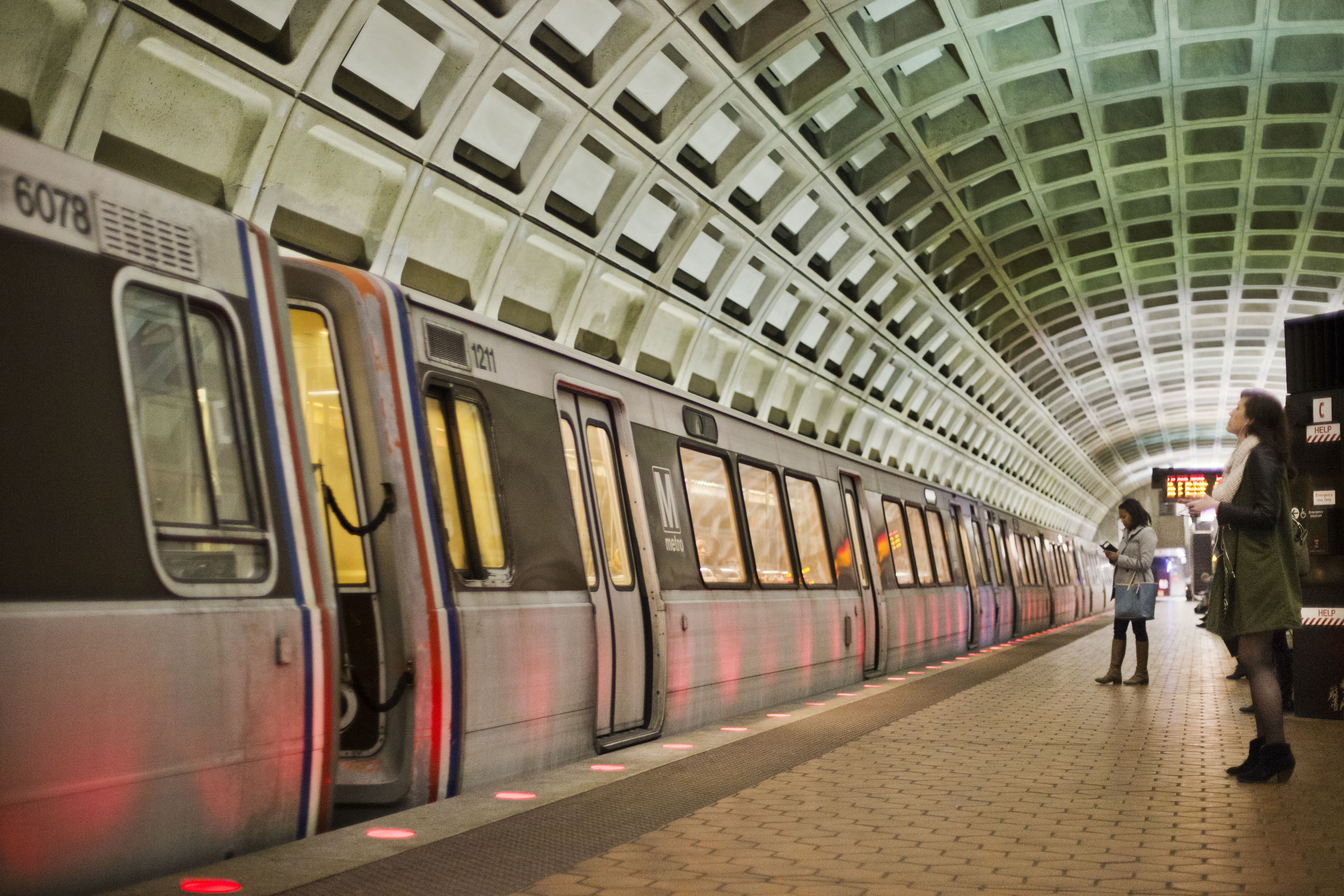WASHINGTON — Amid shrinking ridership and plummeting rider satisfaction, Metro’s initial budget plan for next year would keep current fares and service levels in place.
Metro staff is expected to lay out the proposed 2017 spending plan for the board of directors Thursday. The budget plan would seek no increase in the $845 million in funding from local governments that subsidize the transit agency.
Also Thursday, the board is expected to tackle how to improve service and rider satisfaction, which has tumbled from 82 percent to 67 percent since smoke filled a tunnel near L’Enfant Plaza Station in January killing a rider and injuring scores more.
A presentation for the board says that unreliable service is at the root of rider unhappiness. In surveys, Metro riders say they’re experiencing more problems in their day-to-day trips.
Reduced service reliability could also be contributing to the decline in ridership.
Since 2009, ridership on Metrorail has dropped by about 5 percent. Other contributing factors pushing down ridership, according to Metro, are a rising number of telecommuters, a drop in the federal transit benefit and new transportation competitors.
Metro officials have said previously that increasing fares could turn more riders away and that now is not the time for fare hikes.
The staff says Metro is working to improve reliability with infrastructure and equipment improvements and better maintenance schedules. But dependability remains a key issue facing new General Manager Paul Wiedefeld, who started in the post Tuesday.
Metro forecasts a 5 percent drop in revenue in the one-year operating budget, with revenues totaling about $890 million. Metro’s personnel costs alone over the same period reach nearly $1.3 billion.
One proposed change being considered would reduce revenue further by no longer charging riders when they enter and quickly exit a station.
Under current policy, riders who enter a station then exit are charged the base rail fare. The tab for entering and exiting stations without riding adds up to about $2 million a year.
Metro’s board is expected to finalize the budget in the spring. The new spending plan would take effect in July.
A separate budget details maintenance and equipment replacements. Metro expects to spend $6 billion over the next six years on capital projects.










